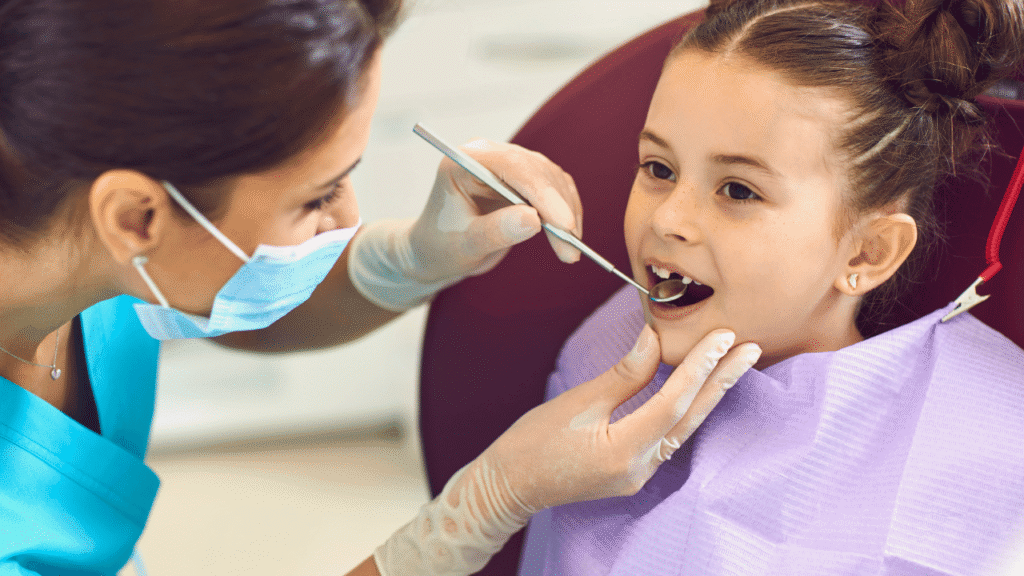Key Takeaways:
- Oral health is crucial for overall physical health and emotional well-being.
- Common misconceptions often lead to neglect of dental care.
- Routine activities, including brushing and flossing, can profoundly affect overall health.
The Importance of Oral Health
Good oral health extends beyond simply having a captivating smile; it is fundamental to overall well-being. The role of dental care is essential, as conditions within the mouth can signify broader health problems that may have repercussions for the entire body. Consistent dental check-ups and effective oral hygiene practices reduce the chances of encountering serious health risks. Neglecting oral health can lead to significant medical conditions. According to resources available through, conditions like periodontal disease have been linked to severe health complications such as heart disease and diabetes. This link highlights the necessity for upkeep in dental routines beyond brushing and flossing.
Enforcing a simple yet effective oral care routine can help prevent many health complications. While it might not be immediately apparent, maintaining oral hygiene is as critical as exercise or a healthy diet. Prioritizing this aspect of health ensures a more robust defense against various diseases and can enhance overall quality of life.
Commonly Overlooked Aspects of Dental Care
Most people consider brushing and flossing the entire scope of dental care when considering oral health. However, several underlying factors contribute to comprehensive oral hygiene. Regular dental visits are crucial yet frequently overlooked by many people, leading to minor issues evolving into major health complications over time. Consistent dental examinations are essential for the timely identification and management of dental concerns; nevertheless, avoiding these visits can result in more significant and painful procedures later on.
Busting Oral Health Myths
Numerous myths about oral health contribute to widespread neglect and misinformation. Some people mistakenly believe that dental care becomes less critical with age or that cavities are caused solely by excessive sugar consumption. These misconceptions must be addressed to promote better oral hygiene practices. Raising awareness and correcting false beliefs are essential steps in closing the gap in dental health understanding. When equipped with accurate information, individuals are more likely to adopt preventive measures and embrace holistic oral care. Reexamining and challenging outdated notions encourages healthier personal choices. Knowledge truly is power—understanding the truth behind these myths helps combat oral neglect and fosters a culture that prioritizes dental health as an integral part of overall well-being.
Essential Elements of Comprehensive Dental Care
Ensuring oral health extends beyond merely possessing various toothbrushes or dental flossing instruments. Comprehensive dental care involves a multi-faceted approach that includes using fluoride toothpaste, antiseptic mouthwashes, and undergoing routine professional cleanings. Dentists emphasize the importance of incorporating preventive treatments into one’s dental practices, as they are crucial for effective oral health maintenance.
The concept also extends to dietary choices, maintaining adequate hydration, and minimizing consumption of harmful substances that contribute to decay and erosion. Through encompassing such a wide range of care elements, one can ensure a high standard of oral health.
How Oral Health Connects to Systemic Health
Oral health is intricately connected to overall systemic health, with various studies underscoring the substantial effects that poor dental care can impose on a person’s overall wellness. Oral bacteria and the inflammation of gum disease contribute to tooth decay and cavities but play a role in the development of cardiovascular diseases and can lead to conditions such as endocarditis, an infection of the heart’s inner lining. The link between oral and systemic health highlights the necessity for regular and detailed dental care. Careful oral health monitoring can yield early signs of possible systemic issues, functioning as a preventive measure to mitigate broader health risks.
Practical Tips for Maintaining Oral Health
Brush your teeth twice daily using fluoride toothpaste to promote superior oral health. This practice efficiently eliminates plaque and contributes to the prevention of dental caries.
Additionally, it is recommended to incorporate daily flossing to eliminate food debris and plaque that can build up between the teeth and along the gumline. Sugary snacks and drinks should be restricted, as high intake may elevate the likelihood of developing cavities and experiencing dental erosion. Arranging regular dental appointments for check-ups and professional cleanings is essential to upholding optimal oral health.
Incorporating these preventive strategies can substantially lower the risk of developing serious dental complications, contributing to the long-term stability of oral and systemic health.
Recent Innovations in Dentistry
Technology has dramatically impacted dentistry, leading to the emergence of innovations like 3D printing and digital X-rays. These advancements improve diagnostic precision and treatment effectiveness. They also offer greater procedure accuracy, reduce treatment invasiveness, and often lower the costs and duration of recovery. These innovations have improved patient comfort and considerably enhanced dental treatment outcomes.
As these technologies continue to develop, they provide opportunities for redefining how dentists approach treatments, fostering a more proactive rather than reactive stance in oral health management strategies.
The Future of Dental Healthcare
Innovative tools like artificial intelligence and digital health records are poised to transform the landscape of dental diagnostics. They offer enhanced precision and significantly reduce the likelihood of human error. By utilizing real-time data collection and advanced analytics, digital health records will prioritize prevention over reactive treatment.
These groundbreaking advancements hold great promise for elevating the standards of care within the dental profession. They will facilitate a proactive approach to oral health, allowing for timely interventions and continuous improvements that can lead to healthier smiles and a better quality of life for patients. As we move forward, integrating these technologies will reshape how dental care is delivered and empower individuals to take charge of their oral health in unimaginable ways.




